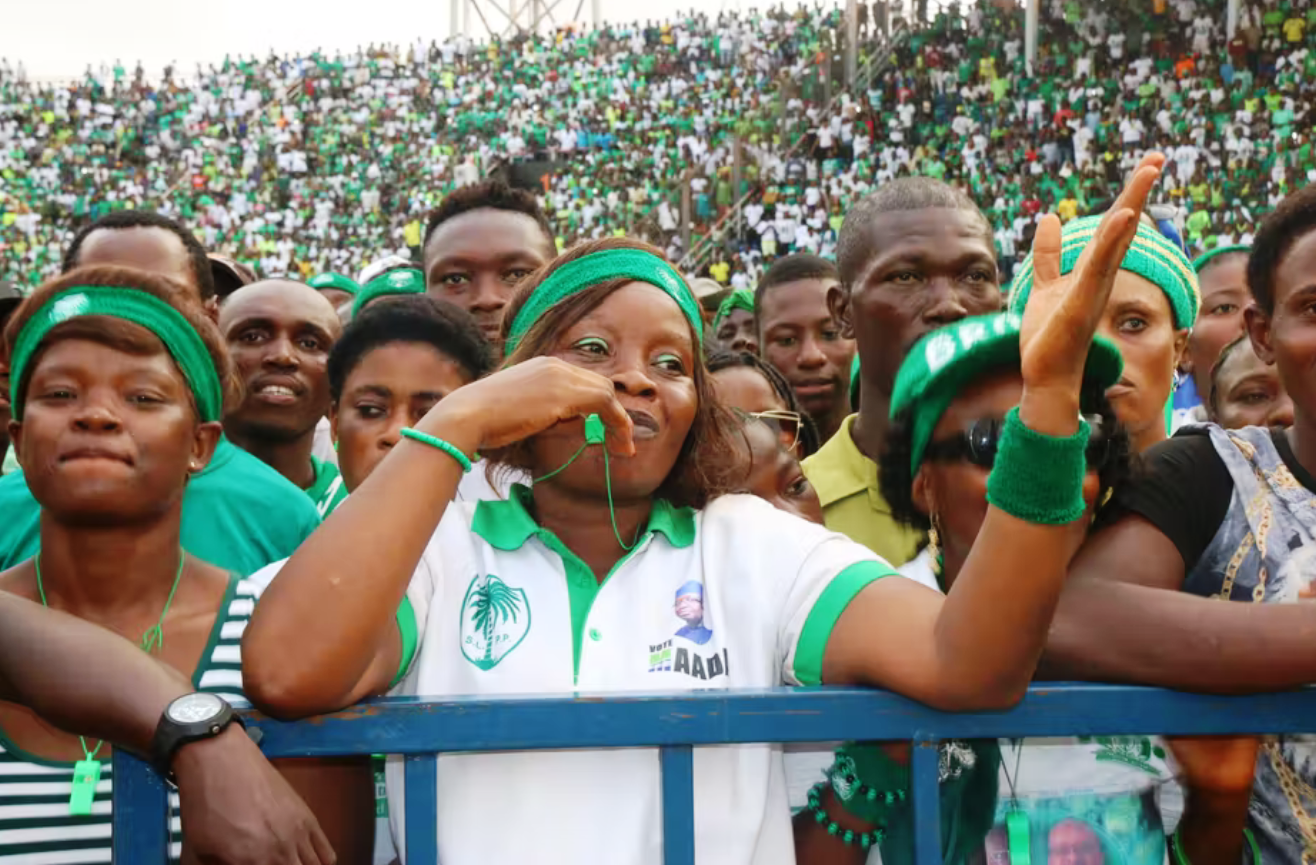By Joseph A. Kamanda
Microfinance institutions are normally set up to help improve the lives of rural poor women. It is expected to be a pro-poor idea aimed at improving and scaling up livelihoods and alleviating women from extreme poverty.
The sector is the poorest in Sierra Leone and women are always in trouble for unpaid credit loans from microfinance institutions, almost everywhere in the country. Some women are behind bars for failure to pay back their loans.
Government’s financial policy provocatively known as ‘bread and butter’ 2020 budget has declared that authorities are set towards spending over one hundred billion Leones for poor women’s livelihood improvement, but right groups fear with beliefs that the proposed pro-poor strategy will hardly work in the interests of the actual targeted beneficiaries – the rural poor women rather than the elitist affluent ones.
There are aspersions being cast all over the place that the scheme will only target pro-ruling Sierra Leone People’s Party (SLPP) supporters and so called poor women who have the right political connections even if they are not as poor as one could imagine as long as they are with the main links they must be fully entitled to such loans.
One such civil society organizations that continue to calling on government to direct the funds to the right targets is the Budget Advocacy Network – BAN. The CSO had always calls for financial inclusion towards pro-poor budget and improve socioeconomic engagements. And to the 2020 financial policy, BAN commends government’s giant moves for micro-enterprise promotions with the sum of over 100 billion Leones. The scheme we are told is set to target over twenty thousand people of which 70% of beneficiaries must be rural poor women whiles the 30% are men not necessarily SLPP youth nor Julius Maada Bio Women’s Wing, while the poor masses languish in abject poverty.
The CSO thus far expressed serious concerns over the imprisonments of small scale business women for none payments of micro-credit loans to profit making microfinance companies. BAN has accordingly suggested that such facilities be transformed into grants instead of loans which most of the women might not be able to repay in record time, which is why the need for BAN’s further recommendation that the National Commission for Social Actions though they are yet to relate well to the needs of the rest of people of Komoya, Six Mile resettle communities amongst other vulnerable places with little or no social services nor actions.
Though not fully impartial for it must has it biases in favour of incumbent party supporters and members, NACSA is known for its efforts in social protection considering its sound records in areas of repatriating refugees and internally displaced persons by the wars in Sierra Leone and that of neighboring Liberia, we deem it fit that the commission be mandated with strictly guided selection criteria, back by the right capacities to handle such windfalls for so called pro-SLPP poor women. Despite hue and cries of recent facilities managed by the commission only targeted pro-SLPP vulnerable groups.
In Sierra Leone according to several studies including the World Bank and others micro financing is rendering more poverty rather than how it is expected to reduce it, especially for unpaid loans by some of the debtors who are not capacitated enough to remit their loans back to the companies. These mostly land good number of micro-driven business women behind bars and end up in jail provided they are unable to fix their debts, as a matter of fact the scheme imposes more poverty then it could be alleviating it.
Some fled their various communities for failures to repay their outstanding loan debts to microfinance institutions within the country, resulting to permanent closures of their businesses, due to lack of access to cash to finance to sustain their businesses. And the stalling of those small scale and medium enterprises escalate the already imposed poverty the country is battling day in day out, that is why much is expected of NACSA this time around to handle the issues very well in granted the mandate to implement it.
The fact remains Sierra Leone is still a country where the people live less than a Dollar per day while over 60% of the population live below poverty level rendering the country as the poorest in the world, due to poverty related issues including lack of access to finance for women and youth.
In 2014, out of a 3.6m adults, only 3.1m were unbanked in Sierra Leone, i.e. had no access to finance nor bank accounts accountable in the country.
So that much government publicized idea of micro financing actually meant for poor women only benefits the wealthy and those with the right connections, though government is set to turn this into a thing of the pasts through support to poor women as declared recently by Finance Minister Jacob Jusu Saffa in his bread and butter budget delivered to the nation. We are patiently waiting to see how the one hundred billion Leones windfall will positively impact on the lives and businesses of poor rural women and their entire livelihoods, before we pre-empt its whole purpose of it being selectively targeting card carrying ruling SLPP so-called poor women.
Much as these vulnerable remain constant liability to the state the same way government officials including the blotted cabinet and the presidency, for whom government is fully responsible even though it is no secret that most of them are not up to their task, finance through the right state authorities should be as well looking after such group of Sierra Leoneans including women and youth rather than just relatives of SLPP members and those whose siblings are currently holding government offices.
That is not the fashion of national development we want as a country with poverty records after the decade long civil war.
The Minister of Finance Saffa in his statement while tabling the bill for enactment said the bill geared towards to increasing revenue and at the same time creates the enabling environment for businesses to thrive and create employment opportunities. That was loudly heard and revenue mobilization is rapidly though less improvement is being made to meet the great expectations of the suffering masses.
Moreover the rural poor women are yearning to see the apex banks operating in their communities giving them grants as follow up measures in sync with government’s policy espoused in the 2020 budget so as to reduce poverty in rural.
Targeting pro-ruling party women and youth support groups could be seen as a one of the smartest preparations by the president to secure a smooth path ways for his second term, which is the more reasons some critical minds and pundits are of the views that as long as president Bio is relating well to his southern and easterner SLPP supporters he must secure a comeback by 2023.
For them the ‘bread and butter’ hand to mouth deal is working fine for them and their people in places the SLPP truly considers as their strongholds.
However such facilities should not be strictly directly to only ruling party women support groups called poor women. So we expect fair play and equal opportunities across the process from whoever is going to implement the disbursements of such funds to the targeted beneficiaries.











